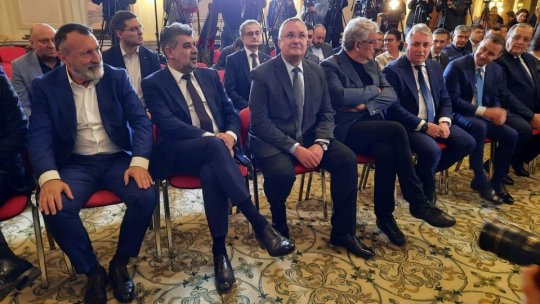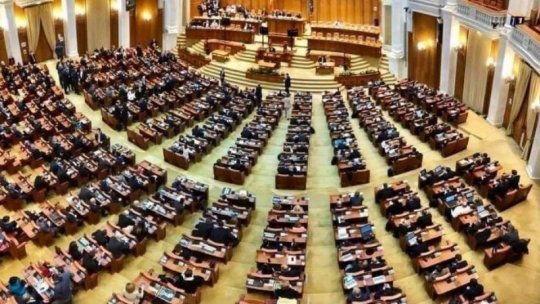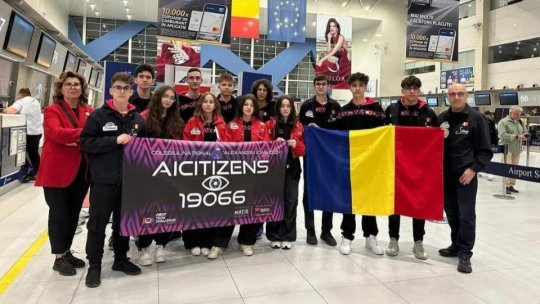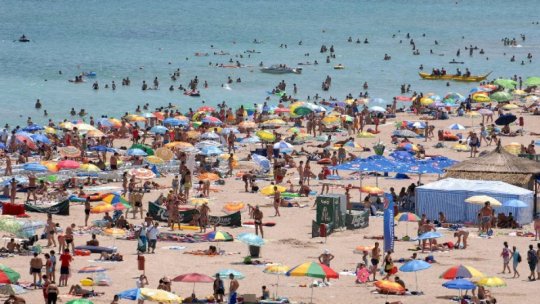How a hospital is closed down
"How nice our hospital was! Even nicer than an inn!"
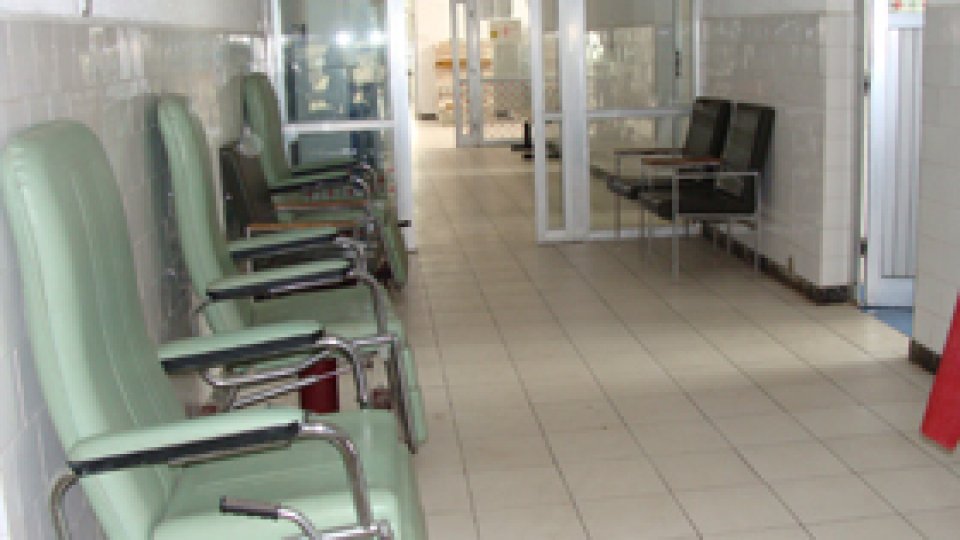
Articol de Liliana Nicolae, 02 Noiembrie 2011, 07:54
"Hello!"
"Hello!"
"Where is the hospital?"
"Well, it is right here: behind you!"
"Right, but the notice on the gate says ‘Old People’s Home’…"
"Listen to me: this is the hospital! I went into this hospital when I got a cold some time ago!"
In the late seventy-year-old man’s mind, "the hospital" is still a hospital. Even if it has been closed down. And he knows it too! He says to me: "everybody was amazed when hearing it was to be closed down, because people would come here from all the villages: from Frumoasa to Cernetu! Now, they’ve shut it down and it’s stayed like this!" "Like this", that is, with another notice on the gate.
Only two days after 1 April, I went to Cervenia, in Teleorman, the date on which the Government Resolution "closing down hospitals" became enforceable. In Cervenia, the hospital became an old people’s home over night. In only two days, it got a new sign and stamp, while the old wards started being changed into two-bed rooms with en suite bathroom.
Anyway, the small hospital in Cervenia was lucky enough to have been "changed" so fast. Out of sixty-seven hospitals closed down throughout the country, only six have reached such performance.
In one of the offices, some former and current employees (simultaneously!) are settling the last bureaucratic matters. When Nadia first came to this hospital, sixteen years ago, she was a clinical support worker and now she is a nurse. Ionela Stoica has been for twenty years in Cervenia. In time, she got a degree and became a Financial Manager at the hospital. On a Sunday, Dragoş Popa came to his father’s, into the locality, "I asked him to help us clean the hospital yard and it occurred to me that I should hire him", the head of the hospital, Dr. Nicolae Bulumac, tells us. "When I hired him, I gave him two young hogs as a present, i.e. Tom and Jerry. They were my present! Afterwards, he finished his studies and became an economist!"
Dragoş’s wife is an assistant in a chemist’s, but she does everything that is required. There is also the physical therapist Corina Pantilie, who came to the hospital one day and asked: "Is it possible for me to work here?" "Everything is possible!", she was answered.
The Cervenia village has almost 3,000 inhabitants. The hospital had 85 beds, divided into four units. In such a small community, the hospital employees were like a family: they all gave a helping hand when there was much work to do. They also worked together in the backyard to improve the meals of the sick. They remember that, in summer, they used to pick up so many marrows, green peppers or apples that they could hardly find room for them in the car boots. Also, the villagers say, full of nostalgia: "How nice our hospital was! Even nicer than an inn!"
The head of the hospital, Dr. Bulumac, was born in Cervenia, where he also spent his childhood. By chance, shortly after graduating from university, he returned to his native village as a doctor. It happened thirty years ago. He has been the head of the hospital ever since. The hospital has its own story too and the villagers know it very well. It was set up in the early ’40s by a native boyar, Nicolae Racotă (who also set up a school and a church in the village), along with a doctor.
"Doctor Dăniţă was to leave for Hamburg on a scholarship. But, on a winter evening, boyar Racotă came and took him on a sledge, because his wife was very sick. Afterwards, they talked that night, had boiled ţuica, and decided to start the hospital. At first, it was called "sanatorium" and all the villagers helped with the building: everyone gave one leu for a brick."
The 2011 health reform found the hospital in Cervenia, as I was saying, with four units: internal medicine, geriatrics, paediatrics and medical and physical medicine and rehabilitation. A physician sent from Bucharest, from the Ana Aslan Institute covered geriatrics two days a week, a retired physician was the paediatrician and the other specialties were covered by permanent physicians. Even so, to the villagers in the area, the hospital used to be their "salvation". Whenever they were in trouble, they hurried there. Now, the only solution for them is to call the ambulance from Alexandria. A fifteen-kilometre trip up to there and another fifteen-kilometre return trip, on a road, on which, as the villagers say: "your perfusion is very likely to pop up from your vein".
Doctor Bulumac pities the villagers. He says that, from now on, they are to travel to Alexandria, where they can get a diagnosis, then… "they are simply given their medical test results and are sent home. This is how it has worked until now as well. Only they did not go home, but they came to us since this is what small hospitals are for. It is useless knowing the disease you suffer from if there is no one to care for you, to give you the right medical treatment. I guess this is what is lost by closing down small hospitals, i.e. the sick will stop having access to healthcare. County hospitals are going to be bombarded with patients and will not be able to cope with the situation."
The County Hospital of Alexandria was built in the ‘70s, but soon it is to be included within a refurbishment programme on European funds. It is one of the smallest in the country (along with those in Călăraşi, Giurgiu and Sălaj). It has a little over 600 beds. However, Doctor Monica Roşu, the medical manager, has a different perspective on the health reform. She says emergencies will still come to the hospital in Alexandria, where they used to come so far, so overcrowding should not be made an issue. "People say they come to us, because in small hospitals, as they say, there is no equipment to diagnose them, to find out what they suffer from! I think closing down small hospitals in the countryside is appropriate because, very frequently, patients with chronic, common conditions would go into those hospitals. Often, they would go to the hospital, were admitted into there and simply got a few medicines a day, which they can easily do at home, in their own bed. Developing ambulatory care services and casualty hospitals is very important. And the latter facilities should be able to receive enough patients, should employ medical specialists, and should also have the necessary equipment because you cannot practise medicine with just a stethoscope and a blood pressure meter. I agree, everyone wishes they had a hospital in their village. But, I think we are too poor to afford this!"
Back to Cervenia, downtown, at the village store, I give rise to a real talk-show with my microphone.
"I have a heart condition. I almost died a few days ago! Why?!... Well, I got into a panic! If the hospital had been here, I would have hurried there and worked it out! But... I had to take a pill and settled down!"
"I went to the hospital, to Alexandria, with my little girl, but unless you pay, you will be ignored! Here, we, the villagers knew each other... and, besides, our hospital is cleaner!"
"Let the TV reporters come and see the conditions in the Alexandria and those in the Cervenia hospitals!"
"Here, there is a bed-ridden paralysed neighbour. Our doctor would always put him into the hospital as he was in a difficult financial situation. And he would help him too! He never turned his back on anyone!"
"You could also find healthy food, there was a garden in the backyard, there were also seven mineral springs with drinkable water, just like the spa water you find at a spa. That is why the villagers would come and got water by cans from there!"
"Yes, you cannot mess with people’s health! You steal their last hope of life from them!"
"You, Maria, what was my blood pressure? "‘Cause you took my blood pressure... 200! Ah, our doctor set me on my legs again in two weeks!"
Among protesters, there is an old man who remembers, in a quavering voice, that he was ten when the sanatorium was opened, in ‘42.
"This is the biggest war ever. It is worse than in Libya! There are the chemist’s shops left to be closed down and that would be it! Why should I go to Alexandria? We have our hospital here!
"But what are you going to do from now on?", I ask them.
"Bad!" "Where will you to go?"
"High up!"...
Doctor Bulumac takes me to the empty wards of the hospitals, then to the rehabilitation unit well-endowed with much equipment. The unit will also work within the Old People’s Home as well, although everyone was hoping that the chronic condition hospital could have been changed into a geriatrics facility. Especially due to the fact that the first step was made a few years ago through the collaboration with the Ana Aslan Institute. "It is such a pity! They should have analysed each case separately before deciding which hospital is to be closed down and which is not", doctor Bulumac says. "I think this reform is slapdash. They wanted to work it out, to help the sick out, they cooked their goose and the sick are dead now. In fact, I think they want to lay hands on the buildings and plots of land related to the facilities which have been closed down. They have been trying to do that at our hospital ever since 1990. We’ll surely see this in a while, we’ll see what will become of the closed down facilities."
Translated by: Simona Gosu
MA Student, MTTLC, Bucharest University


